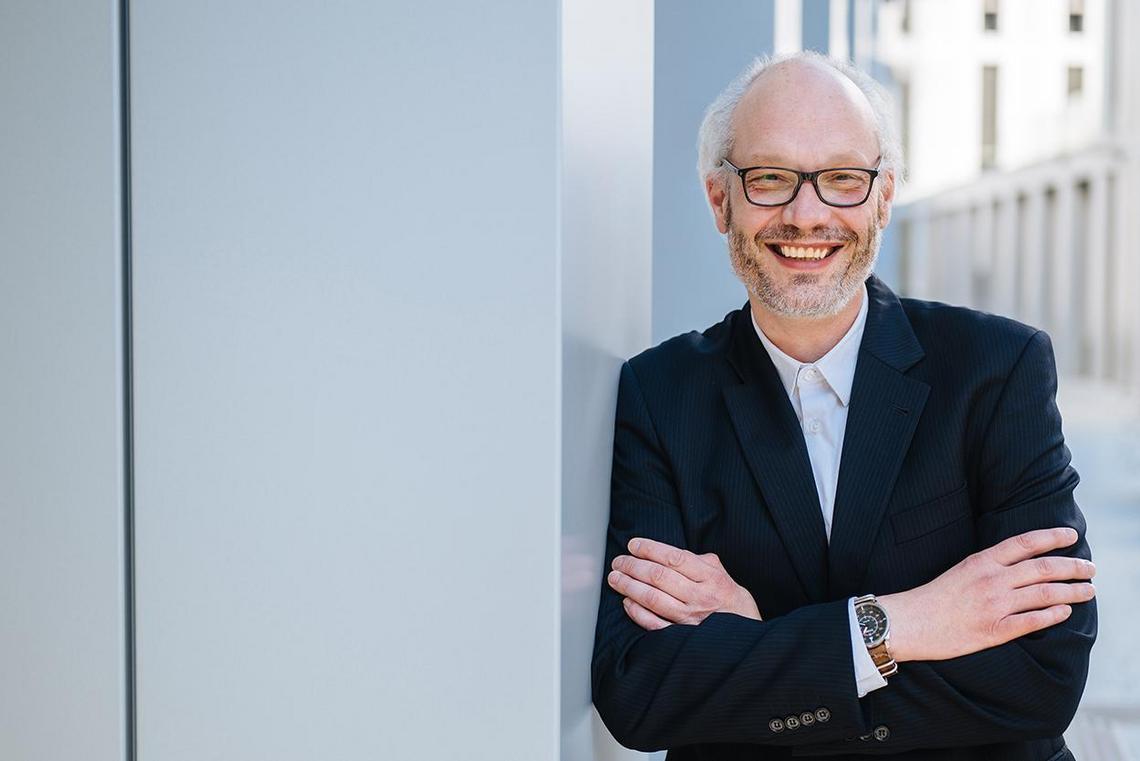Dr. Christoph Metzner has been appointed the new Programme Director of the master programme in Medical and Pharmaceutical Biotechnology at IMC Krems University of Applied Sciences (IMC Krems) as of autumn 2024. With an impressive career in medical biotechnology and a passion for research, he provides fresh ideas and an inspiring vision that will benefit students and the field alike.
Press
With research strength and a vision

A path to science: practical focus and a spirit of innovation
After graduating from the University of Vienna with a degree in Microbiology and spending an ERASMUS year in Glasgow, Metzner started his career at the Institute of Virology at the University of Veterinary Medicine Vienna. There he conducted research on biotechnological applications such as gene therapy vectors and vaccines. In the years prior to his switch to IMC Krems, he worked for an Austrian pharmaceutical company, where he developed innovative infrastructures for research into aging and regeneration processes.
His motivation to understand the scientific basis of life ultimately led him to teaching – and now to IMC Krems, where he aims to pass on his knowledge and passion to students.
Research for the future: communication at the cellular level
A core area of Metzner’s current research is so-called vesicular communication, an unconventional signalling process in biological systems. In this process, cells exchange small lipid vesicles that transport important information – even between human cells and bacteria. These discoveries open up new approaches for medical biotechnology, particularly in the development of therapies for a variety of diseases.
With his research, Metzner aims to further develop this technology and focus on biotechnological applications. “Tapping the potential of these signalling pathways could revolutionise therapy and diagnostics in many areas,” he explains enthusiastically.
Practical focus and networks: Metzner’s vision for the degree programme
For Metzner, it is important that IMC Krems, as a university of applied sciences, continues to promote cutting-edge research and imparts practical skills. He sees his role as providing students with a holistic perspective on the biotechnological process, ranging from basic research to industrial application. This approach opens up a wide range of career opportunities for graduates, as they are immersed in the entire research and production process.
At the same time, Metzner aims to expand international and interdisciplinary networks in order to strengthen research standards and career prospects for students. The focus is on adapting the “skills development” components of the degree programme so that graduates are optimally prepared for the real-world demands of the professional world.
Teaching as a calling: teamwork and open exchange
Metzner sees teaching as one of his greatest passions. He values a cooperative learning environment in which students develop their own ideas and are allowed to make mistakes. “A culture of error is important because it is the only way we learn to find new solutions,” explains Metzner. For him, open, respectful interaction is the key to productive teamwork and innovative ideas.
He particularly appreciates the students’ open-mindedness and curiosity, which motivate him to constantly question his own work critically. “Students often bring new perspectives that inspire me,” says Metzner.
A researcher with a sense of humour and an eye on the future
Metzner also convinces personally with his relaxed, humorous manner. “Dealing with people is my greatest motivation – sometimes it’s also a challenge,” he says with a laugh. Music and exercise in nature are important sources of energy for him, helping him to relax after work.
The biotechnologist also pursues his teaching activities with his tongue in his cheek: “A Nobel Prize is unlikely for me – but there is still a chance for the students. Maybe one day I’ll get a ‘second-hand’ Nobel Prize!”
Dr. Christoph Metzner brings refreshing dynamism and expertise to IMC Krems. With his enthusiasm for research and his openness to new ideas, he will shape the Medical and Pharmaceutical Biotechnology degree programme and support students on their way to becoming innovative biotechnologists.
